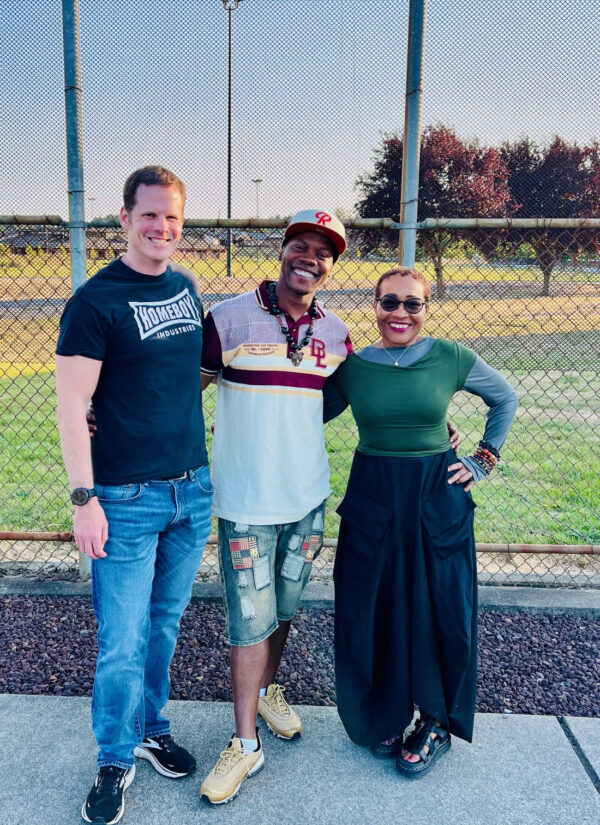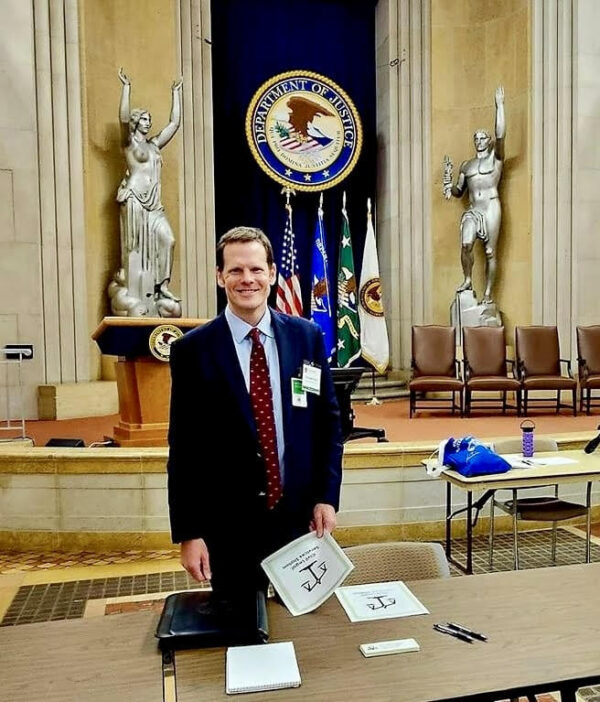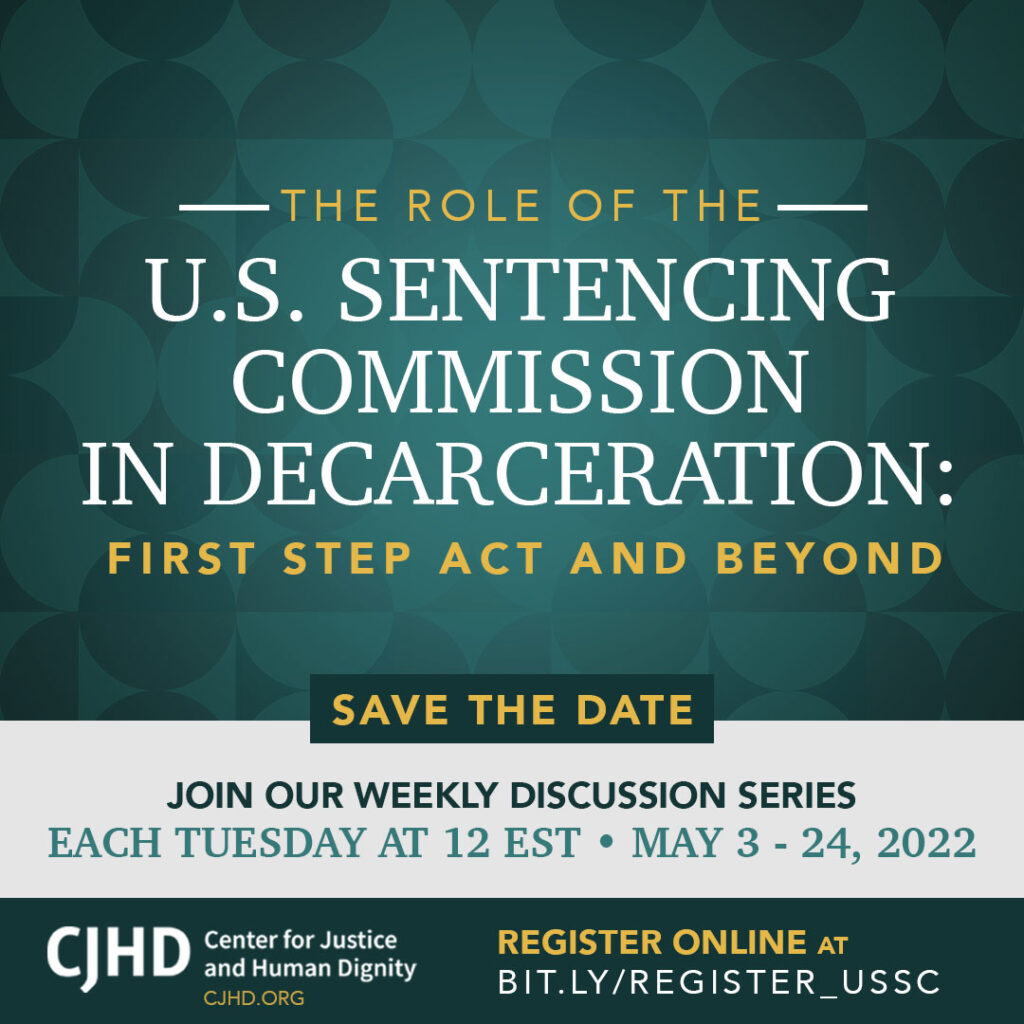Progress and Impact
Advancing Federal Alternatives to Incarceration (ATI) and Sentencing Reform
- Collaborating with the Western District of Washington to support the development and evaluation of the nation’s first federal mental health-focused diversion court.
- Collaborating with the District of Utah as a model for other jurisdictions and convening a key site visit with District of Colorado stakeholders.
- Building relationships with federal districts across the U.S., from New York to Louisiana, to explore designing and launching mental health, substance use, and restorative justice programs.
- Making recommendations to and adopted by the United States Sentencing Commission.
- Presenting to the Federal Magistrate Judges Association on ATIs.
Innovating Reentry
- Further developing and serving on the Western District of Washington’s Federal Reentry Committee.
- Exploring partnerships to develop federal reentry courts in multiple districts, including Colorado and Arkansas.
- Successfully advocating for policy changes in Washington state, such as expanding gate money access and ensuring state IDs for individuals exiting DOC custody.
Improving Correctional Culture
- Hosting impactful webinars with leaders in corrections in partnership with Dr. Lisa Clements, Rachel Clements, and the Correctional Leaders Association, attracting hundreds of participants from around the globe.
- Developing youth and adult family councils to improve communication between incarcerated people, their families, and facility leadership and staff.
- Participating in the Arrow Center for Justice’s international human dignity in prisons cohort, with site visits to Norway, Germany, and Brazil to learn about innovative practices that can be adapted to and implemented in the U.S.
- Developing a groundbreaking outdoor-focused reentry program modeled after the Norwegian system, fostering teamwork, communication skills, and community bonds for currently and formerly incarcerated people and correctional staff.

CJHD is thrilled to share that we have now partnered with the Washington State Department of Children, Youth & Families to bring system impacted youth and staff out into nature. The first outing was in partnership with the Tacoma Youth Marine Center and Northwest Credible Messenger where we brought dozens of youth and staff members out on a ship off the coast of Tacoma. Participants learned about Washington’s maritime history and industry and got directly connected with post-release employment, apprenticeship, and scholarship opportunities.

Screening and discussion of the transformative film, Since I Been Down, with the incarcerated youth at Washington’s Green Hill School. The film features Kimonti Carter (center) and was produced by filmmaker Dr. Gilda Shepherd (right).

Executive Director Christopher Poulos serving as civil legal aid attorney at The United States Department of Justice for a Reentry Simulation hosted by JustLeadershipUSA. DOJ participants learned about the challenges of reentry and accessing services.
Your support fuels this progress. Make a donation.
Outdoor Reentry Project
Stronger Individuals. Stronger Communities.
When people returning from incarceration are given the chance to heal, grow, and reconnect—in nature and in community—everyone benefits.
The Outdoor Reentry Project brings together incarcerated individuals nearing release, correctional staff, and community members for immersive outdoor experiences like hiking, camping, and sailing. These aren’t just adventures—they’re opportunities to build communication, trust, and the foundation for long-term success.
nspired by a proven model in Norway and now underway in Maine and Washington State, this program is already showing how reentry support rooted in dignity and connection can ripple outward—strengthening families, improving public safety, and rebuilding communities from the inside out.
This is about more than second chances. It’s about creating thriving, interconnected communities where everyone has a role and a future.

Official Press Release
The Center for Justice and Human Dignity and Aleph Institute Convene Hundreds of Key Criminal Justice Stakeholders Nationwide for Rewriting the Sentence II 2023 Summit, to Promote Alternatives to Incarceration
Washington, D.C. (October 16-17, 2023): The Center for Justice and Human Dignity, a nonprofit organization dedicated to safely reducing the use of incarceration and improving conditions for correctional staff and incarcerated individuals, hosted the Rewriting the Sentence II Summit at the George Washington University Law School on October 16 and 17, 2023.
The Summit brought together hundreds of current and former judges, prosecutors, probation and pretrial officers, individuals directly affected by incarceration, and other key stakeholders in the criminal legal system to exchange ideas about effective alternatives to incarceration and to build sustained networks for their expansion throughout the country, as well as discuss the culture change in the system away from harsh punitiveness and toward greater humanity and alternatives to incarceration. The Rewriting the Sentence II Summit united these decision-makers for a peer-to-peer learning experience involving alternative approaches to criminal justice and highlight a vast array of innovative alternative approaches to sentencing currently used in jurisdictions throughout the country.
“Rewriting the Sentence II comes at an exciting moment for alternatives to incarceration, with federal guidance and directives militating in favor of their expansion, and a hunger for ways to safely reduce the use of incarceration and bring alternative sentencing programs to scale in our country,” says Hanna Liebman Dershowitz, a longtime criminal law policy reform attorney who serves as Director of Policy and Legal Affairs at the Center for Justice and Human Dignity.
This historic event featured a keynote address by Dr. Alisha Moreland-Capuia, McLean Hospital/Harvard Medical School expert on trauma-informed systems transformation, as well as remarks and insights from Bureau of Prisons Director Colette Peters, U.S. Sentencing Commission Chair Hon. Carlton Reeves, U.S. Department of Justice Pardon Attorney Elizabeth Oyer, and many more.
The Summit featured a dozen panels providing expert insights from current and former federal and state judges, prosecutors, probation chiefs, restorative justice practitioners, local legislators, survivors of harm, system-impacted individuals, and other subject matter experts. The convening also highlighted a live conversation with currently incarcerated individuals over Zoom, as well as a mock sentencing workshop with former federal judge Nancy Gertner.
“We are proud of the robust program we have crafted,” says the Center’s Executive Director Christopher Poulos. “With this Summit, we aim to move the needle by highlighting a range of programs attendees can implement in their jurisdictions and tools they can use every day to be more attuned to and compassionate toward the individuals whose lives they directly impact.”
The Center for Justice and Human Dignity, founded in 2021, is a nonprofit organization whose mission is safely reducing the use of incarceration in the United States while improving conditions for incarcerated people and correctional staff. The Center promotes values of human dignity and shared safety while keeping in mind the needs of survivors, directly impacted people, and society at large. Alongside diverse partners, we collaborate with judges and prosecutors on alternative sentencing programs, correctional leaders on conditions of confinement, and policymakers on early release strategies. To learn more about the Center for Justice and Human Dignity, visit cjhd.org.
The Center was incubated at The Aleph Institute, a nonprofit organization formed in 1981 to assist and care for the wellbeing of members of specific populations that are isolated from the regular community: U.S. military personnel, incarcerated individuals, and people institutionalized or at risk of incarceration. Aleph addresses their religious, educational, and spiritual needs, advocates for their civil and religious rights, and provides support to their families. Aleph is committed to criminal justice reform and recidivism reduction through preventive education and faith-based rehabilitation programs, re-entry assistance, alternative sentencing programs and practices, and policy research and recommendations. To learn more about The Aleph Institute, visit aleph-institute.org.
Click here for additional Summit information, including the event’s full program.

“Chris has worked so many years to support the people within our corrections system and promote strategies for successful re-entry.
This is a well-deserved feature about him and his work.”
– Governor Jay Inslee, featuring Chris Poulos’s NBC Sunday Spotlight profile.
Center for Justice and Human Dignity Welcomes Christopher Poulos as Executive Director
OLYMPIA, WA – Following an extensive, nationwide recruitment effort, the Center for Justice and Human Dignity (CJHD) is honored to announce the appointment of Christopher Poulos as Executive Director, effective February 1, 2023. Poulos is an attorney and former senior government executive who brings a wealth of personal and professional passion and expertise to this pivotal role. His path led him from trauma, addiction, and incarceration to graduating from college and law school and serving at both the White House Office of National Drug Control Policy and The Sentencing Project.
After attaining licensure in state and federal court, Poulos served as Executive Director of the Washington Statewide Reentry Council and, most recently, as Director of Person-Centered Services at the Washington State Department of Corrections. His position at the Washington State Department of Corrections was unique in that it was the first of its kind and the first time a formerly incarcerated person has held a senior executive role in a state department of corrections.
Poulos’s work and personal story have been featured on The Today Show and in The Guardian, The New York Times, Washington Post, NBC News, The Hill, Crosscut, The Epoch Times and The Harvard Law and Policy Review. Poulos was selected as one of Portland Magazine’s “Most Intriguing People” and as “Law Student of the Year” by National Jurist Magazine.
Now available on-demand
The Role of the U.S. Sentencing Commission in Decarceration: First Step Act and Beyond
A weekly virtual panel discussion series examining how the U.S. Sentencing Commission and its guidelines impact mass incarceration. Featuring judges, scholars, and practitioners discussing how guidelines, policy statements, and data collection might advance decarceration efforts and address system disparities. Watch all panels here.
Visit our Events page to learn more!
The critical impact of sentencing
“During the sentencing hearing, the lawyers and the judge discuss the appropriate sentence, often at great length, but after the judge announces a decision, that judge, the lawyers, and the staff move on to the next case; the hearing and outcome soon fade into distant memory.
Meanwhile, for the defendant, the torture of a monotonous existence begins, while life for his family moves forward without him. For him, every day, month and year that was added to the ultimate sentence will matter. The difference between ten and fifteen years may determine whether a parent sees his young child graduate from high school; the difference between ten and fifteen months may determine whether a son sees his sick parent before that parent passes away; the difference between probation and fifteen days may determine whether the defendant is able to maintain his employment and support his family.
Thus, it is crucial that judges give careful consideration to every minute that is added to a defendant’s sentence. Liberty is the norm; every moment of incarceration should be justified.”
Hon. George J. Hazel, U.S. District Judge, District of Maryland
Key Stats
Our System Needs Change
1 hour
The limited amount of time per day that the more than 60,000 people in U.S. solitary confinement are allowed for showers, brief exercise, or medical visits.
13 states
The number of states in the hottest regions of the country lacking universal air conditioning in their prisons, tragically leading to preventable and inhumane heat-related illness and death.



